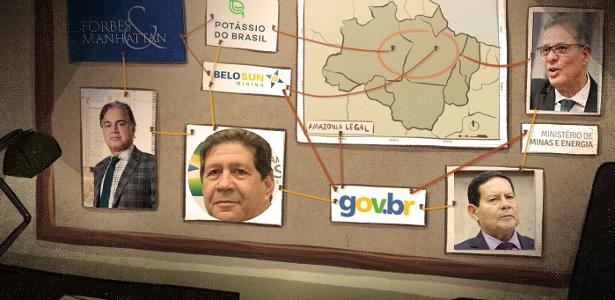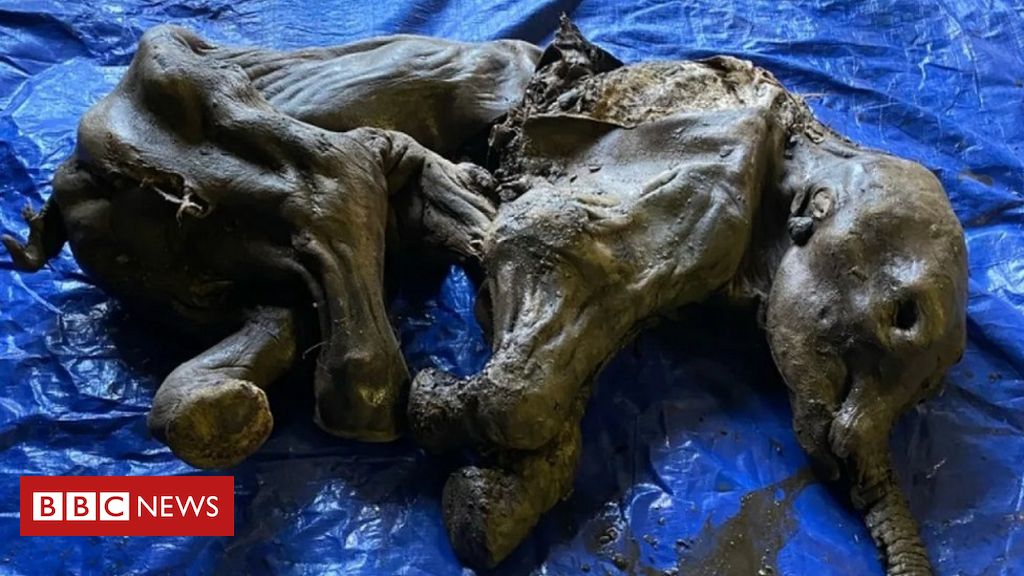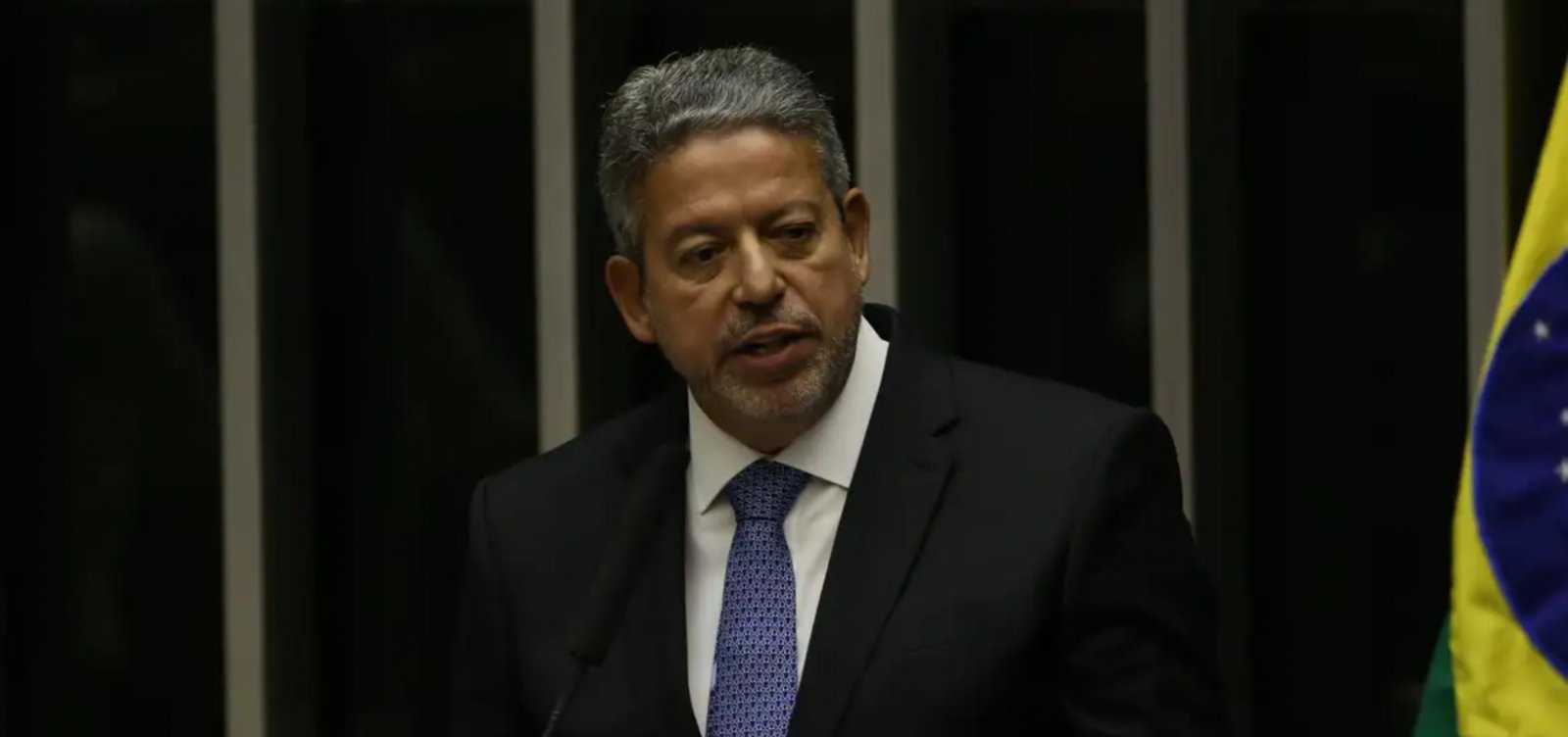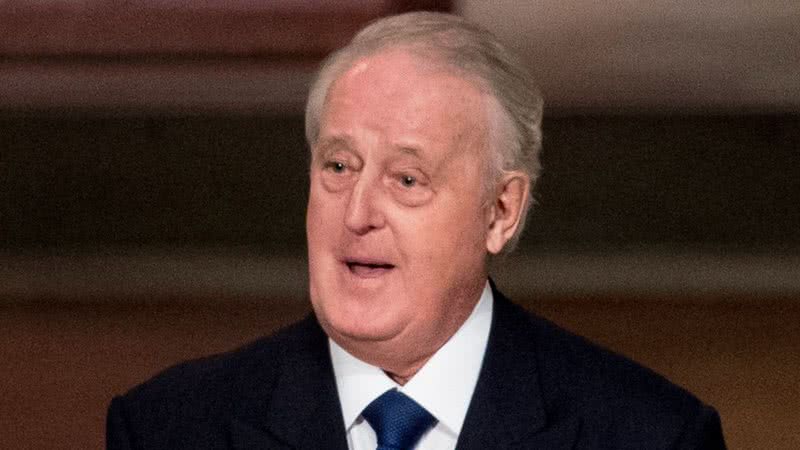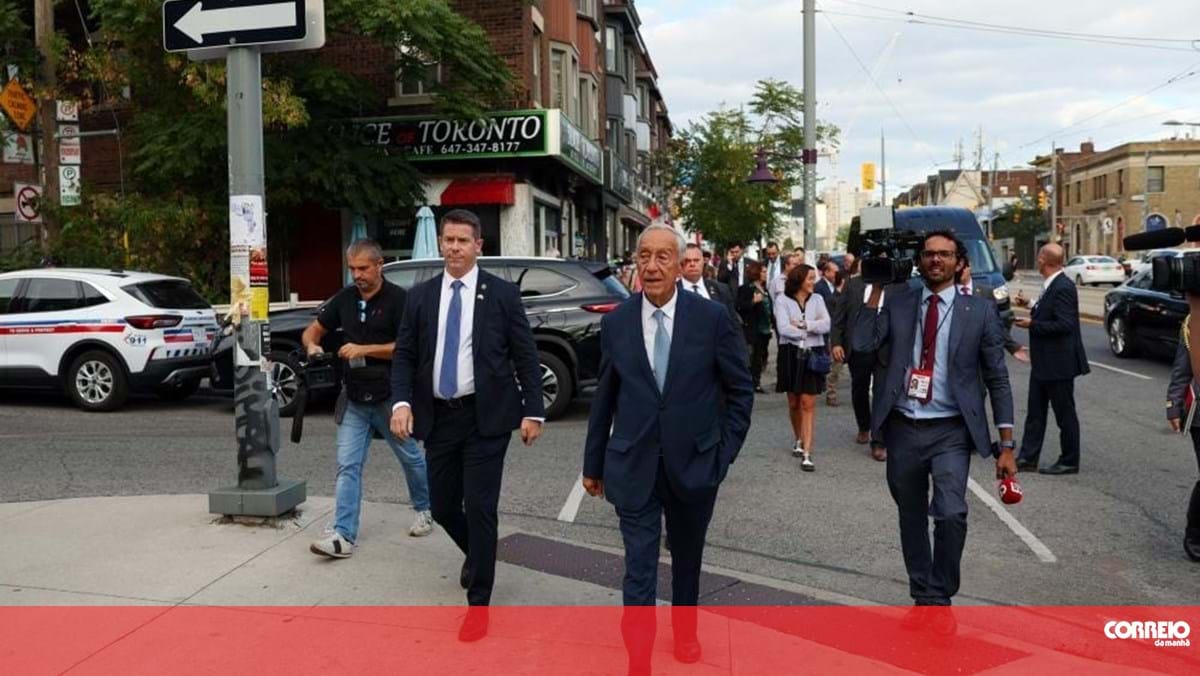Canadian bank Forbes & Manhattan (F&M) faced difficulties with its Amazon business prior to the inauguration of President Jair Bolsonaro (PL). Gradually, the group approached members of the Armed Forces in the Executive, reaching the vice president of the Republic, Hamilton Mourão (PRTB) — who he dealt directly with, in exclusive meetings in Brasília, according to a series of documents obtained by the Agency. public.
During the meeting, an Army brigadier general acted on behalf of F&M and its mining company alongside government leadership. Cláudio Barroso Magno Filho is a veteran of the UN peacekeeping mission in Haiti and has been in the business of consulting and selling equipment for the Armed Forces and contractors since he joined the F&M reserve in Brazil in the 2000s.
For more than ten years, the group has been trying to release environmental permits from its mining companies in the Amazon, Belo Sun and Potássio do Brasil, impacting settlers, indigenous people, and river populations in Amazonas and Pará. Belo Sun is the best-known case, which F&M shares with some of its top executives—the case of its founder and chief executive, Stan Bharti.
- Check out today’s news, analysis by Josias de Souza and more at UOL News with Fabíola Cidral:
Belo Sun mining agreement
Belo Sun plans to build the world’s largest open-pit gold mine at Volta Grande do Xingu, more than 800 km from Belém (PA). If successful, the Canadian company will install a tailings dam at Senador Porfírio (PA) which is larger than the one that Vale di Mariana (MG) broke into.
“From the government side, there is pressure to release the Volta Grande project,” said Elisângela Côrtes, a public defender who coordinates the regional human rights center in Altamira (PA) and is involved in the case. “For us, this project is above all not feasible, both from a social and environmental perspective”, he said.
According to documents obtained from the report, the plans of mining companies related to F&M developed when Brigadier General Barroso Magno was involved in negotiations. The official agenda places him in Belo Sun’s conversations with the Bolsonaro government since 2019.
In September of that year he met, on behalf of Belo Sun, with the leadership of the Geology and Mining Secretariat of the Ministry of Mines and Energy. In May 2021, another meeting with the government, again with Barroso Magno in attendance on behalf of a Canadian mining company.
The Brigadier General is not on the list of directors, managers, or other positions on the Belo Sun website, while he is credited by the government as a consultant at a mining company.
Barroso Magno’s last meeting with the government took place ahead of the agreement between Belo Sun and Incra, on November 25, 2021. Because.
Present at the delegation on behalf of Belo Sun, Barroso Magno met with the president of the Incra board of directors, Geraldo de Melo Filho, and with the agency’s director of Project Completion Development and Consolidation, Giuseppe Serra Seca Vieira.
The following day, the 26th, “signed between the Incra Presidency and the Belo Sun Mineração Ltda company.” the contract for “a concession of use of an area of 2,428 hectares, i.e. 1,439 hectares overlapping the Ressaca Settlement Project and 989 hectares overlapping with Gleba Ituna, located in the municipality of Senador José Porfírio, in the state of Pará”, for “mining exploration purposes”. Even under suspicion, the treaty has been published in the State Gazette.
To Agência Pública, the brigadier general stated that he only worked with Potássio do Brasil, another Forbes & Manhattan mining company. “I don’t know about other projects [do grupo canadense]”, she says.
However, one of the materials gleaned from the report, calls Cláudio Barroso Magno Filho the “vice president of government relations” of the Canadian group in Brazil. “I am not a lobbyist to open doors, but to develop projects: I was hired, on the one hand, because of my experience with management”, the military man said.
Incra argues that the land use concession for Belo Sun “represents approximately 3.5% [da área total] settlement of Ressaca”, that “there is no discontent in the area” – that is, the land has not yet been transferred to the Canadian group – and that, “if there is a need to relocate residents, this [sic] will be discussed in the environmental permit process with the state environmental agency.” The agency has also publicly expressed its views on the case.
Facing Mourinho
Mourão greets Stan Bharti during audience with Forbes & Manhattan
Image: Romario Cunha/VPR
His trajectory in the Army would ensure Cláudio Barroso Magno Filho transit among influential members of the current government. The military has known, for example, Vice President Mourão for more than 40 years — they both attended Aman (Agulhas Negras Military Academy) at the same time.
“The army is a big family, because we share a lot of ‘things’ [sic] similarities, but despite being contemporaries of Gen [general] Mourão, we are not friends,” the brigadier general told Pública.
In the second month of administration, military officials visited Hamilton Mourão. The agenda for the meeting is not yet known, but it is known that in June 2019 Barroso Magno participated in the first exclusive meeting of the F&M Chief Executive with the Vice President of the Republic.
Since then, military men have met with the government either as advisers or as consultants to the Canadian group and its mining companies. During the same period, F&M strengthened its relationship with the government.
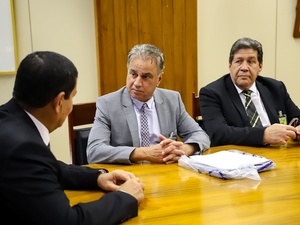
Mourão (back) talks with Stan Bharti and Brigadier General Barroso Magno Filho
Image: Romario Cunha/VPR
In an institutional video from November 4, 2019, the group’s chief executive, Stan Bharti, says: “this is an interesting poster, we have a company – Potássio do Brasil, Brasil Potash – which we are developing, should be produced soon”.
A week later, in the midst of a BRICS summit in Brasília, Stan Bharti and Tao Yang — president of Chinese construction company Citic, partner of mining company Potássio do Brasil — discussed the company’s plans with Vice President Mourão, as indicated in the Highlands agenda.
Between 2020 and 2021 there will be at least seven other Executive meetings with only representatives from mining companies. During the same period, the federal government created Pró-Minerais Estratégicos, a federal policy that “supports environmental licensing” of both mining companies associated with F&M in the Amazon.
One of the documents shows that, by 2020, at least one of these companies — Potássio do Brasil — already anticipates a future classification of its projects as “strategic” by the government.
The material includes a slide with photos of the signing of a contract between a mining company and the Bolsonaro government, with Stan Bharti and Hamilton Mourão present. “Potassium from Brazil is considered ‘nationally important’ by the ‘federal government,'” the document says. Wanted, the vice president of the Republic did not respond until publication.
Pro-Mineral Strategic Policy
Through the Pro-Strategic Minerals policy, which will take effect in March 2021, the Bolsonaro government is willing to “prioritize government efforts” for projects covered by the new guidelines. Canadian companies Belo Sun and Brazil’s Potássio do were among the first to receive the award.
In practice, the new policy allows the government to act “within the articulation necessary to minimize risks and resolve conflicts that may be identified” in projects, providing “support for environmental permits” from approved companies – as in the case of mining F&M companies.
The government operates Pró-Minerais Estratégicos through committees without representation from the Ministry of the Environment or its agencies, or from other bodies generally involved in mining environmental licensing — such as Funai, Fundação Palmares, Incra or Iphan.
The inclusion of mining company F&M also took place without consultation with the Federal Public Defender’s Office and the Federal Ministry of Public Affairs — both with lawsuits against the Belo Sun and Potássio do Brasil projects in court.
The Ministry of Mines and Energy stated, in a statement, that “environmental agencies remain fully responsible for conducting and deciding the environmental permitting process for projects that qualify in the Strategic Pro-Mineral Policy.”
Regarding the lack of consultation with the Office of the Public Defender and the MPF, the ministry stated that project approval in Pró-Minerais Estratégicos “does not require articulation with the above-mentioned bodies”.
F&M: “important” for Brazil, according to Minas e Energia
According to documents obtained through the Access to Information Law (LAI), the director of Potássio do Brasil has been on pilgrimages to the Mines and Energy secretariat since the beginning of Bolsonaro’s administration. But it wasn’t until after Hamilton Mouro’s first meeting with the chief executive of F&M, in June 2019, that the mining company met with Minister and Marine Reserve Admiral Bento Albuquerque.
The ministerial meeting with Potássio do Brasil on 25 September 2019 was not on Bento Albuquerque’s public agenda until Pública contacted him in early February. Through LAI, the Mining Ministry confirmed the presence of the mining company’s directors at the meeting, in addition to the then Director General of Bappenas, Victor Bicca.
As of this publication, the ministry has not answered why Potássio do Brasil is not on the ministerial agenda.
A year after the meeting, in 2020, Bento Albuquerque defended the F&M potassium mining project in the Amazon before the National Observatory for Environmental Issues, set up by the National Council of Justice (CNJ) and the Ministry of Public Affairs (CNMP).
The minister defended the project alongside the portfolio’s then secretary of Geology and Mines, Alexandre Vidigal de Oliveira, who had met with Potássio do Brasil five times before the occasion.
According to an article by the ministry itself about a meeting at the National Observatory, a “solution” for Canadian mining companies—environmental licensing, in this case—is “critical” for Brazil.
But the project will affect indigenous and riverine communities in Autazes (AM), more than 100 km from Manaus. At the confluence of the Madeira and Amazon rivers, this is an area very close to the Jauary and Paracuhuba Indigenous Lands, belonging to the Mura people, both of which are not delimited by the Union.
The MPF filed a public civil lawsuit against Potássio do Brasil on the grounds that a Canadian mining company had drilled in the area without a proper permit.
“The environmental permit granted by the state of Amazonas is invalid because it involves the lands of the Mura people; the permit is the responsibility of Ibama and indigenous peoples need to be consulted”, said the federal prosecutor handling the case. , Fernando Soave, to Pblica.
As of the conclusion of this report, however, consultations with indigenous peoples have not been completed and IBAMA has absolved itself of licensing, as shown by the recent decision of the first Federal Court in Amazonas in the case. Wanted, the Ministry of Mines and Energy claims to understand “that the project aimed at the production of potassium and phosphate is important for the country”, without going into further details.
*Collaboration: Ananias Oliveira
This report is part of Amazon Without Special Laws, by Agência Pública — apublica.org.

“Coffee aficionado nerd. Troublemaker. General communicator. Gamer. Analyst. Creator. Total brew ninja.”

